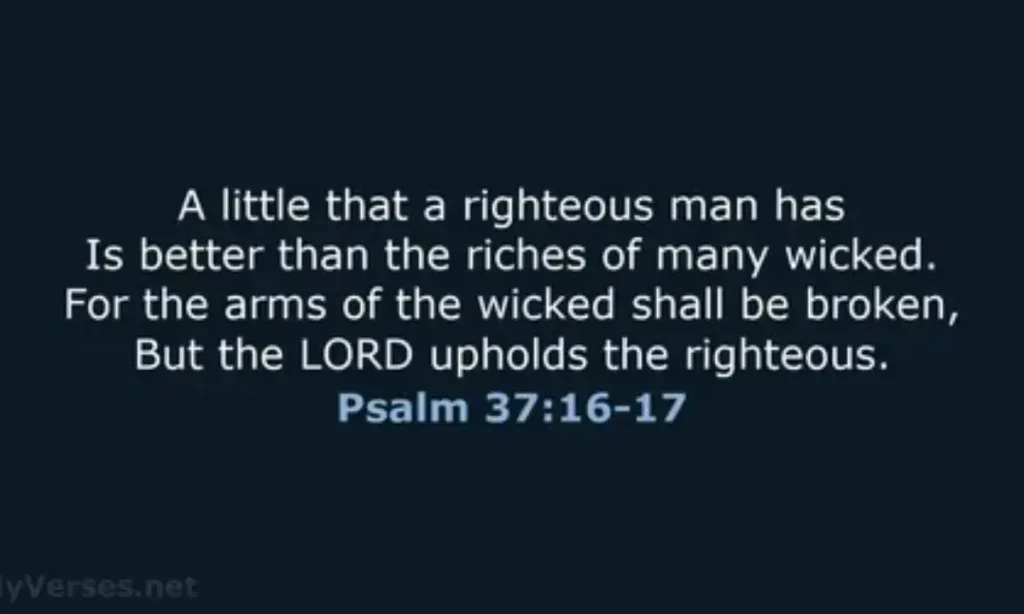Throughout history, governments have risen and fallen. Some have upheld justice and truth, while others have embraced corruption, oppression, and wickedness. The Bible doesn’t shy away from addressing corrupt leadership or the suffering it causes. Instead, it offers wisdom, divine perspective, and hope to those enduring under unjust rule.
This comprehensive guide explores Bible verses about wicked government, examining what Scripture teaches about corrupt rulers, how believers should respond, and how God’s justice ultimately prevails.
Table of Contents
Understanding the Nature of Wicked Government
The term “wicked government” in Scripture refers to rulers and authorities who abuse power, oppress the poor, and ignore God’s laws. Wicked governments often arise when moral decay infiltrates leadership and truth is replaced by greed or pride.
Key Biblical Traits of Corrupt Leadership
| Trait | Biblical Reference | Explanation |
|---|---|---|
| Oppression of the poor | Isaiah 10:1-2 | Condemns leaders who write unjust laws to exploit the vulnerable. |
| Injustice and bribery | Micah 3:9-11 | Leaders twist justice for personal gain and sell judgments for profit. |
| Abuse of authority | Ezekiel 22:27 | Princes are compared to wolves tearing prey and shedding blood for dishonest gain. |
| Moral decay | Habakkuk 1:4 | The law becomes paralyzed; justice is perverted because of wicked rulers. |
These passages reveal that corruption isn’t new — it’s a recurring human failure rooted in sin. Yet, the Bible constantly reminds us that God remains sovereign, even when leaders act unjustly.
God’s Sovereignty Over Governments
Even in corrupt systems, God is in control. He allows leaders to rise and fall according to His divine plan.
Scriptural Evidence of Divine Control
- Daniel 2:21 – “He changes times and seasons; he deposes kings and raises up others.”
- Proverbs 21:1 – “The king’s heart is in the hand of the Lord; he directs it like a watercourse wherever he pleases.”
- Job 12:23 – “He makes nations great, and destroys them; he enlarges nations, and disperses them.”
These verses emphasize divine sovereignty, reminding believers that even corrupt governments serve a larger purpose in God’s design.
“No ruler operates outside God’s permission — their authority is limited and temporary.”
The Consequences of Wicked Leadership
Wicked leadership brings national suffering, economic decay, and moral collapse. The prophets frequently warned Israel’s kings that corruption invites divine judgment.
Examples of Judgment on Corrupt Rulers
- King Ahab – Exploited his power to steal Naboth’s vineyard. God pronounced destruction upon his house (1 Kings 21).
- Nebuchadnezzar – Became proud and claimed divine power. God humbled him until he acknowledged heaven’s authority (Daniel 4:30-37).
- Belshazzar – Mocked God by using temple vessels for a feast. His kingdom was taken that very night (Daniel 5).
These stories demonstrate that God’s justice may seem delayed, but it is never denied. Every corrupt government will ultimately face accountability.
Prophetic Warnings to Wicked Rulers
The prophets were fearless in speaking against corruption. They stood as voices of truth when leaders strayed from righteousness.
Powerful Prophetic Messages
- Isaiah 1:23 – “Your rulers are rebels, companions of thieves; they all love bribes and chase after gifts.”
- Jeremiah 22:13 – Warns rulers who build their houses with injustice and use others’ labor without pay.
- Ezekiel 34:2-4 – Condemns shepherds (leaders) who feed themselves instead of tending to their flock.
Prophets didn’t only expose corruption — they reminded rulers that leadership is a sacred responsibility entrusted by God.
The Christian Response to Corrupt Governments
When believers live under unjust regimes, the Bible offers clear guidance on how to act without compromising faith.
1. Pray for Leaders
1 Timothy 2:1-2 instructs believers to pray for “kings and all those in authority” so that we may live peaceful lives. Prayer doesn’t mean approval — it means interceding for change and repentance.
2. Obey God Above Man
Acts 5:29 declares, “We must obey God rather than men.” When government commands contradict God’s Word, Christians must stand firm in obedience to divine authority.
3. Practice Righteousness
Even in wicked times, believers are called to be lights of truth and justice (Matthew 5:14-16). Integrity becomes an act of resistance.
4. Seek Justice Peacefully
Jeremiah 29:7 says, “Seek the peace and prosperity of the city… Pray to the Lord for it.” Christians should promote justice through lawful, peaceful means.
Faith Under Oppression
Faith often shines brightest in darkness. When governments persecute believers, Scripture encourages perseverance.
Examples of Enduring Faith
- Daniel in Babylon – Continued praying despite a royal decree (Daniel 6:10).
- The Apostles – Preached Christ even under threat (Acts 4:18-20).
- Early Christians – Suffered under Rome yet transformed the empire through faith and love.
These stories reveal that faith is stronger than fear. The believer’s loyalty belongs to a higher Kingdom.
God’s Justice and the Hope of His Eternal Kingdom
Every human government is temporary, but God’s Kingdom is eternal and righteous.
Scriptural Promises of Divine Justice
- Psalm 75:6-7 – “It is God who judges: He brings one down, he exalts another.”
- Psalm 82:3-4 – “Defend the weak and the fatherless; uphold the cause of the poor and oppressed.”
- Revelation 19:15-16 – Depicts Christ ruling with justice and truth.
Ultimately, Christ’s reign will replace every corrupt system, bringing lasting peace and justice to the earth.
Ethical Leadership: God’s Standard for Rulers
Righteous leadership reflects God’s heart — rooted in humility, service, and justice.
Qualities of Godly Leaders
| Virtue | Biblical Reference | Description |
|---|---|---|
| Integrity | Proverbs 16:12 | Righteousness secures a throne; wickedness destroys it. |
| Compassion | Psalm 72:4 | A good king defends the poor and saves the needy. |
| Wisdom | Proverbs 8:15-16 | Wise rulers establish just laws through understanding. |
| Servanthood | Matthew 20:26 | True greatness in leadership is found in serving others. |
These principles outline how leaders can govern in a way that honors God and blesses people.
Lessons from History and Case Studies
History offers real-world examples of both wicked and righteous governance — each reinforcing biblical truth.
Case Study 1: Ancient Israel
When Israel followed God’s laws, the nation prospered. But when kings embraced idolatry and injustice, they faced exile and ruin. (2 Kings 17).
Case Study 2: The Roman Empire
Despite oppression, early Christians influenced the empire through steadfast faith. Their endurance and moral conviction eventually led to societal transformation.
Case Study 3: Modern Parallels
In modern nations where corruption prevails, communities rooted in faith often become centers of reform — proving that righteousness still exerts quiet power.
Living Faithfully Amid Corruption
Believers are not helpless under wicked governments. The Bible empowers them to act with courage and conviction.
Practical Steps for Believers
- Stay anchored in Scripture – Know God’s Word to discern truth from deception.
- Engage responsibly – Vote, advocate, and support justice through legal means.
- Build strong communities – Churches can model integrity and compassion.
- Trust God’s timing – Justice may delay, but it never disappears.
“The Lord is known by His acts of justice; the wicked are ensnared by the work of their hands.” – Psalm 9:16
Final Reflections: Hope Beyond Human Rule
Every corrupt empire eventually collapses, but God’s Kingdom endures. When believers look at injustice today, they can take comfort in knowing that divine justice is certain.
The Bible’s message is clear:
- God appoints and removes rulers.
- Wickedness will face judgment.
- Righteousness will reign forever.
Faith, prayer, and perseverance are our greatest tools against corruption.



